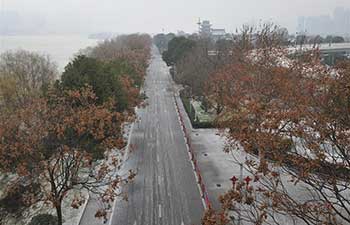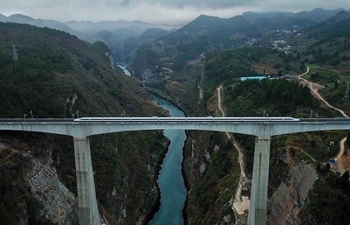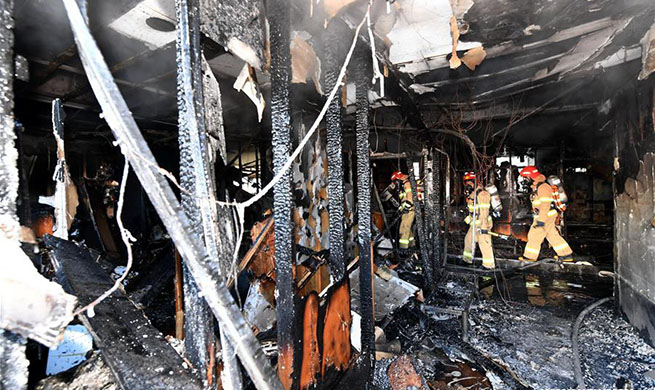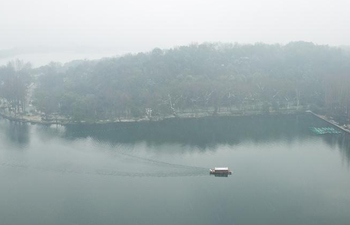BERLIN, Jan. 26 (Xinhua) -- Government planners have announced further cost increases and delays in the construction of the major public infrastructure project "Stuttgart 21" on Friday.
According to official calculations, the total costs for the troubled railway station could reach a total of 8.2 billion euros (10.18 billion U.S. dollars). The new figure is nearly twice as high as the estimate of 4.5 billion euros presented at the start of the project. Additionally, the completion date was pushed back for a fifth time to 2025, four years later than originally anticipated.
The related costs of connecting Wendlingen and Ulm as part of the wider Stuttgart 21 infrastructure drive would also rise from 3.26 billion euros to 3.7 billion euros.
The new figures presented in Berlin on Friday were based on an assessment by the accountancy firm Price Waterhouse Coopers (PwC) and the engineering company Emch+Berger. Higher building costs due to a booming German construction industry and tight domestic labor market, problems concerning the building site, and a desire by the management of the German National Railway Company (Deutsche Bahn) to create a financial buffer against the risk of future price increases were given as reasons for Stuttgart 21's deteriorating financial situation.
Nevertheless, the management of Deutsche Bahn had "credibly argued that a continuation of the project Stuttgart 21 is more economically sensible than its cancellation."
When completed, Stuttgart 21 will substitute the existing old Stuttgart terminus railway station with a state-of-the-art underground through-station. The ambitious engineering project has been a long-standing source of controversy in German public debate and drew protests even prior to the beginning of construction in 2010.
It remains unclear at this point, who will cover the additional costs created Stuttgart 21. The Stuttgart airport, Deutsche Bahn, the municipal government of Stuttgart, the state of Baden-Wuerttemberg, the Federal Government, and the European Union (EU) had initially all agreed to contribute to the now dated 4.5 billion euros in anticipated expenses.
As the largest single investor in the project (originally 1.7 billion euros) and the official developer in charge of the railway station's construction, Deutsche Bahn has since met with heavy resistance to its plan to split the unforeseen additional costs between all involved parties.
Together with the heavily-delayed Berlin Brandenburg Airport (BER) and the "Elbphilarmonie" concert hall in Hamburg, Stuttgart 21 has become one of three prominent cases of botched planning for major infrastructure projects which threaten to undermine the international reputation for efficiency and engineering skills which Germans have cultivated.
As a consequence, the Green party transport spokesperson Matthias Gastel reiterated the need for strict cost management in the case of the railway station on Friday. "Financing through the federal government can no longer be a taboo", he added.
Gastel argued that it was high time that the federal government in Berlin "finally took its role as the owner of Deutsche Bahn seriously and unveiled its proposed solutions to the escalating costs."
Striking a similar tone, the Left party (Linke) parliamentarian and railway expert Sabine Leidig described the Stuttgart 21 project as "completely uneconomic." Leidig warned that members of the project's supervisory board which carried on regardless ultimately risked criminal prosecution for their failure to avert financial harm to the publicly-owned development company.
"The Federal Government as the owner must apply the emergency breaks", Leidig demanded. (1 euro = 1.24 U.S.dollars)

















